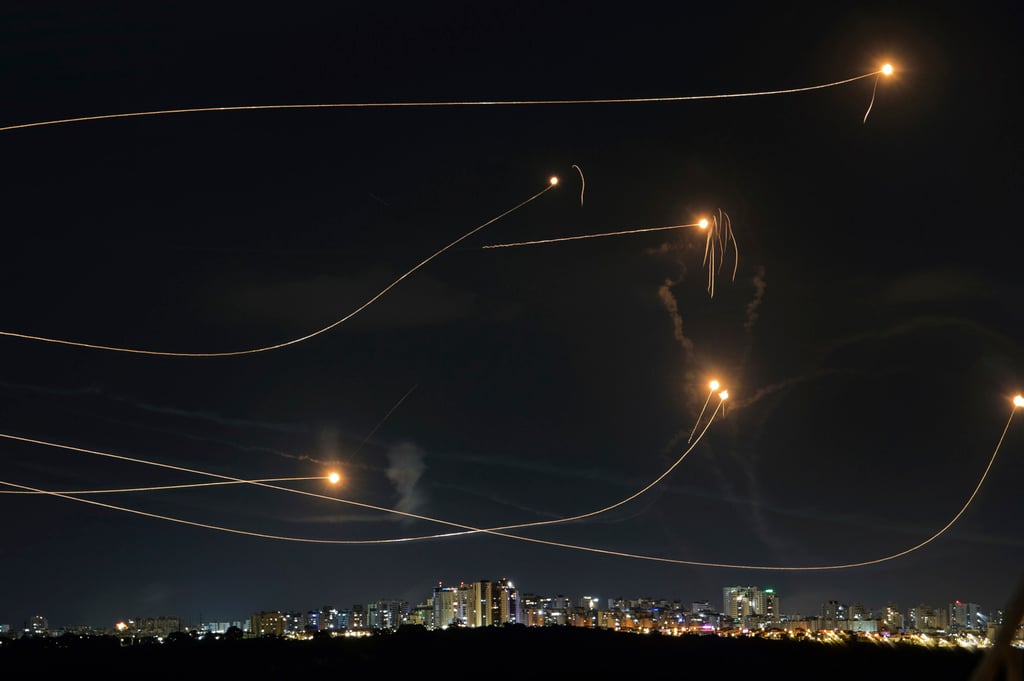
US President Donald Trump announced new details and initial funding for the missile shield system last week
| Published May 27, 2025
North Korea said Trump’s “Golden Dome” plan is “a very dangerous initiative that will turn space into a potential nuclear war field.” Trump has said the program is necessary for US security.
North Korea has vehemently criticized U.S. President Donald Trump’s proposed “Golden Dome” missile defense system, labeling it a “very dangerous” initiative that threatens to militarize outer space and provoke a nuclear arms race. The plan, announced on May 20, envisions a $175 billion space-based shield designed to intercept ballistic, hypersonic, and cruise missiles from adversarial nations, including North Korea, China, Iran, and Russia.
Pyongyang’s foreign ministry described the initiative as “an outer space nuclear war scenario supporting the U.S. strategy for uni-polar domination,” accusing Washington of “hell-bent” efforts to weaponize space. The North Korean government further characterized the project as “the height of self-righteousness, arrogance, high-handed and arbitrary practice.”
The “Golden Dome” system, modeled after Israel’s Iron Dome but expanded to a global scale, aims to deploy hundreds of satellites equipped with advanced sensors and interceptors to detect and neutralize missile threats. Despite its ambitious scope, the plan faces significant technical and political challenges, with critics warning that it could destabilize global strategic stability and violate international norms governing the peaceful use of outer space.

Projectiles launched by Israel’s Iron Dome system intercept rockets fired from Gaza in October 2023. Trump’s ‘Golden Dome’ plan gets its name from Israel’s air-defence system. Photo: AP
China and Russia have echoed North Korea’s concerns, issuing a joint statement condemning the proposal as a destabilizing move that could trigger a new arms race in space. Chinese officials warned that the project could “turn space into a war zone,” while Russian authorities emphasized their capability to overcome such defenses and highlighted the need to reestablish arms control frameworks.
As the international community grapples with the implications of the “Golden Dome” initiative, the proposal has sparked a broader debate over the militarization of space and the potential consequences for global security. With tensions escalating, the plan underscores the urgent need for renewed dialogue and cooperation to prevent the weaponization of outer space and maintain strategic stability.
Here are the key implications of Donald Trump’s proposed “Golden Dome” space-based missile defense system and the backlash from North Korea (and others):
1. Militarization of Outer Space
The Golden Dome project marks a major step toward deploying weapons in space. Critics warn this could violate the 1967 Outer Space Treaty, which bans the placement of nuclear weapons or other WMDs in orbit and discourages space militarization.
2. Heightened Global Tensions
North Korea, China, and Russia have all condemned the plan. Their unified opposition could lead to closer military and diplomatic cooperation between U.S. adversaries, further deepening global divisions and strategic mistrust.
3. Arms Race in Space
This initiative risks triggering a new arms race—not just on Earth but in orbit. Countries may rush to develop anti-satellite weapons (ASATs) or rival space-based systems to counter or challenge U.S. dominance.
4. Erosion of Strategic Stability
Existing nuclear deterrence models rely on mutual vulnerability. A highly effective missile shield could disrupt this balance, prompting rivals to expand their arsenals or adopt more aggressive postures to preserve credibility.
5. Technical and Financial Challenges
With an estimated cost of $175 billion, the Golden Dome faces enormous logistical, technological, and budgetary hurdles. If it fails to deliver on its promises, it could undermine U.S. credibility or trigger wasteful spending.
6. Diplomatic Fallout
The proposal strains already fragile arms control talks. It complicates U.S. relations with both allies (who may feel sidelined or pressured) and adversaries, making future disarmament or space-cooperation efforts more difficult.
Overall Takeaway:
Trump’s proposed Golden Dome defense system signals a bold—and controversial—step toward militarizing space, under the banner of national security. While intended to shield the U.S. and its allies from advanced missile threats, it risks sparking a new global arms race, eroding strategic stability, and drawing sharp backlash from adversaries like North Korea, China, and Russia. The initiative underscores the urgent need for renewed international dialogue to balance defense ambitions with the peaceful use of outer space.
SOURCES: SOUTH CHINA MORNING POST – US ‘Golden Dome’ risks nuclear war in outer space, North Korea says
BUSINESS MIRROR – North Korea says Trump’s Golden Dome risks ‘space nuclear war’
DW – North Korea lambasts Trump’s ‘Golden Dome’ plan
THE TELEGRAPH – Trump’s Golden Dome risks nuclear war in space, warns North Korea





Be the first to comment